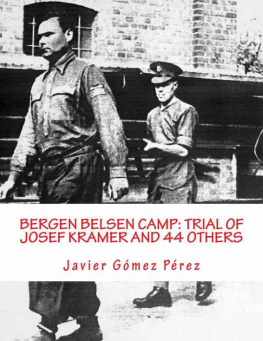R. (Robert) Van Bergen - A Boy of Old Japan
Here you can read online R. (Robert) Van Bergen - A Boy of Old Japan full text of the book (entire story) in english for free. Download pdf and epub, get meaning, cover and reviews about this ebook. year: 1901, publisher: Theclassics.Us, genre: Detective and thriller. Description of the work, (preface) as well as reviews are available. Best literature library LitArk.com created for fans of good reading and offers a wide selection of genres:
Romance novel
Science fiction
Adventure
Detective
Science
History
Home and family
Prose
Art
Politics
Computer
Non-fiction
Religion
Business
Children
Humor
Choose a favorite category and find really read worthwhile books. Enjoy immersion in the world of imagination, feel the emotions of the characters or learn something new for yourself, make an fascinating discovery.

- Book:A Boy of Old Japan
- Author:
- Publisher:Theclassics.Us
- Genre:
- Year:1901
- Rating:5 / 5
- Favourites:Add to favourites
- Your mark:
- 100
- 1
- 2
- 3
- 4
- 5
A Boy of Old Japan: summary, description and annotation
We offer to read an annotation, description, summary or preface (depends on what the author of the book "A Boy of Old Japan" wrote himself). If you haven't found the necessary information about the book — write in the comments, we will try to find it.
A Boy of Old Japan — read online for free the complete book (whole text) full work
Below is the text of the book, divided by pages. System saving the place of the last page read, allows you to conveniently read the book "A Boy of Old Japan" online for free, without having to search again every time where you left off. Put a bookmark, and you can go to the page where you finished reading at any time.
Font size:
Interval:
Bookmark:

OLD JAPAN
R. VAN BERGEN
The Story of Japan, The Story of
China, Heroic Japan, etc., etc.
Japanese Color Pictures
LEE and SHEPARD
M C M I
All rights reserved
A Boy of Old Japan
Norwood Press
Berwick & Smith, Norwood, Mass.,
U. S. A.
MY LITTLE SON
HENRY A. S. VAN BERGEN,
IN RECOLLECTION
OF OUR PLEASANT VISIT
TO CAMBRIDGE
| CHAPTER | PAGE |
| I. | Japan Asleep |
| II. | The Old Yashiki |
| III. | The Messenger |
| IV. | The Fifth Day of the Eleventh Month |
| V. | The Council of the Clan |
| VI. | Young Kano Grows Up |
| VII. | Kanos Journey to Yedo |
| VIII. | Yokohama in 1859 |
| IX. | New Experience |
| X. | Friendship or Hatred |
| XI. | Choshiu Yashiki |
| XII. | Sonno Jo! |
| XIII. | Plotting |
| XIV. | Within the Palace |
| XV. | Underground Rumbling |
| XVI. | The Court Aroused |
| XVII. | A Conference |
| XVIII. | Flight |
| XIX. | Battle and Defeat |
| XX. | Drilling |
| XXI. | Down With Tokugawa |
| XXII. | Conclusion |
| Inouye in Samurai Costume |
| PAGE |
| Peace reigned over the country |
| A Japanese Family |
| Itos mother, suffering from rheumatism, to receive a massage treatment from one of the servants |
| It is really a day devoted to Hachiman, the god of war |
| He was in Kamishimo |
| The friends were standing in the garden of a Teahouse |
| But the houses are still as they were before |
JAPAN ASLEEP
Font size:
Interval:
Bookmark:
Similar books «A Boy of Old Japan»
Look at similar books to A Boy of Old Japan. We have selected literature similar in name and meaning in the hope of providing readers with more options to find new, interesting, not yet read works.
Discussion, reviews of the book A Boy of Old Japan and just readers' own opinions. Leave your comments, write what you think about the work, its meaning or the main characters. Specify what exactly you liked and what you didn't like, and why you think so.











